KDE publica a versión 17.04.0 das aplicacións de KDE
20 de abril de 2017. Chegou a versión 17.04 das aplicacións de KDE. En xeral traballamos en estabilizar e facilitar o uso tanto das aplicacións como das bibliotecas que usan. Solucionando pequenos problemas e escoitando as vosas experiencias fixemos que a colección de aplicacións de KDE falle menos e sexa máis fácil de usar.
Goce das súas novas aplicacións!
KAlgebra
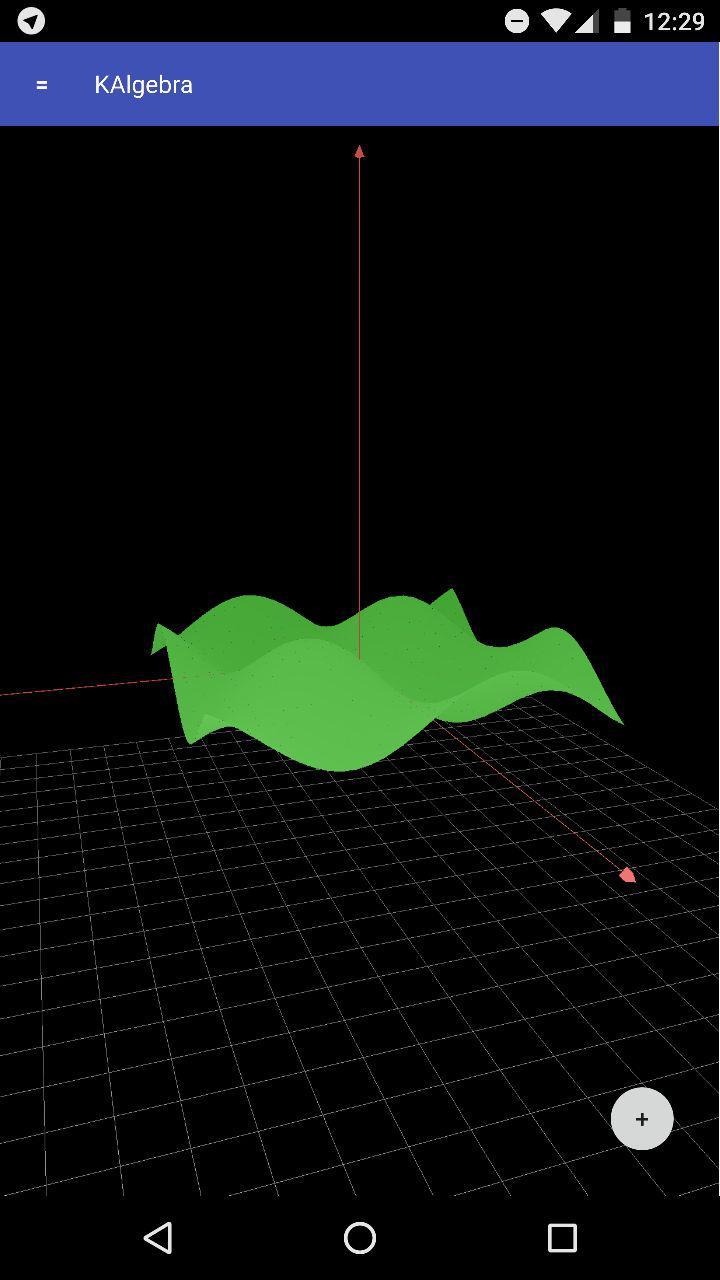
Os desenvolvedores de KAlgebra están traballando na converxencia, e migraron a versión para móbiles do programa educativo a Kirigami 2.0, a infraestrutura preferida para integrar aplicacións de KDE con plataformas de escritorio e móbiles.
Ademais, a versión de escritorio tamén se migrou a infraestrutura de 3D a GLES, o software que permite que o programa renderize funcións 3D tanto no escritorio como en dispositivos móbiles. Isto simplifica o código e faino máis fácil de manter.
Kdenlive
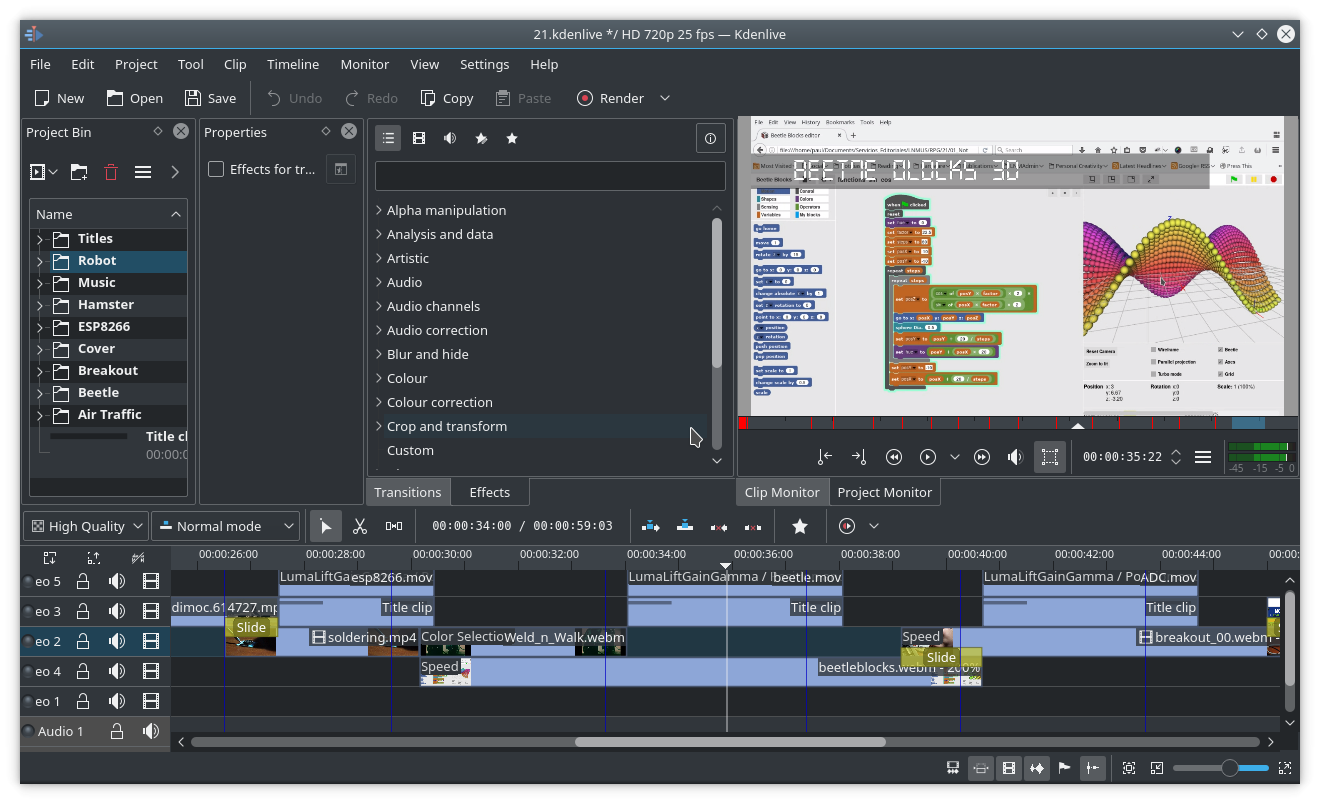
O editor de vídeo de KDE está estabilizándose e aumentando as súas funcionalidades con cada nova versión. Esta vez os desenvolvedores cambiaron o deseño do diálogo de selección de perfil para facer máis doado definir o tamaño de pantalla, a taxa de fotogramas e outros parámetros do filme.
Agora tamén pode reproducir o seu vídeo directamente desde a notificación cando remata a renderización. Corrixíronse algunhas quebras que se producían ao mover fragmentos na liña de tempo, e mellorouse o asistente de DVD.
Dolphin
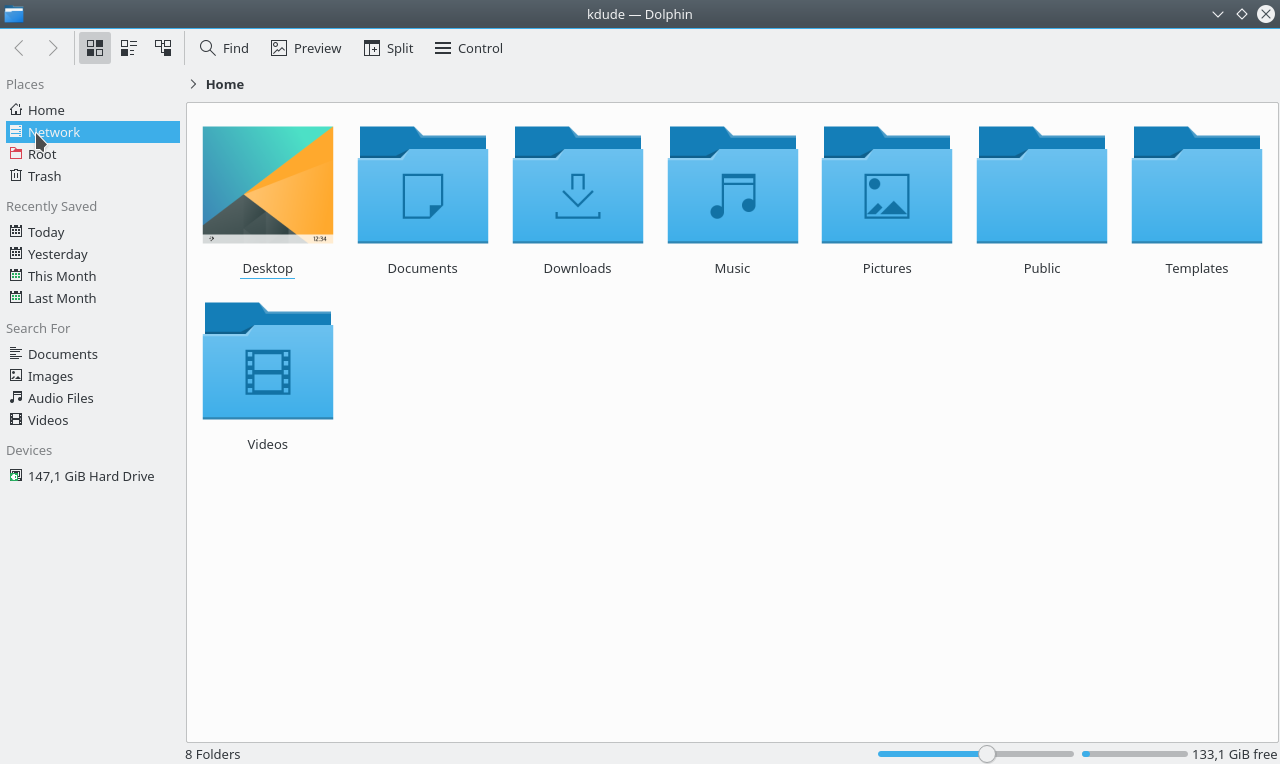
O noso explorador de ficheiros favorito e portal para todo (salvo, quizais, o inframundo) recibiu varios cambios de deseño e melloras de facilidade de uso para facer que sexa aínda máis potente.
Limpáronse os menús contextuais do panel de Lugares (situado de maneira predeterminada á esquerda da zona de visualización principal), e agora pódese interactuar cos trebellos de metadatos nos consellos. Os consellos, por certo, xa funcionan tamén en Wayland.
Ark
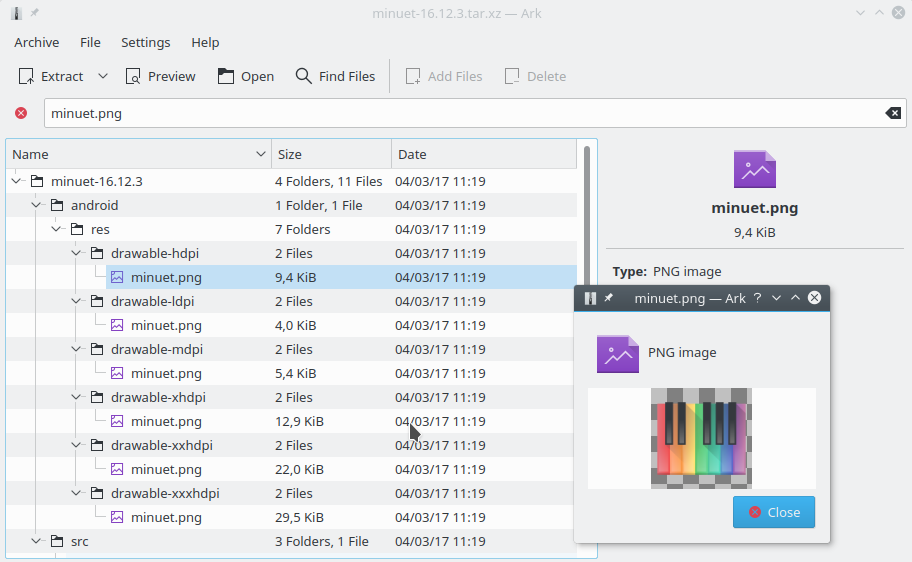
A popular aplicación gráfica para crear, descomprimir e xestionar arquivos comprimidos de ficheiros e cartafoles inclúe agora unha función de Busca para axudarlle a atopar ficheiros en arquivos que teñan moitos.
Tamén lle permite activar e desactivar complementos directamente desde o diálogo de Configurar. Falando de complementos, o novo complemento de Libzip mellora a compatibilidade con arquivos Zip.
Minuet
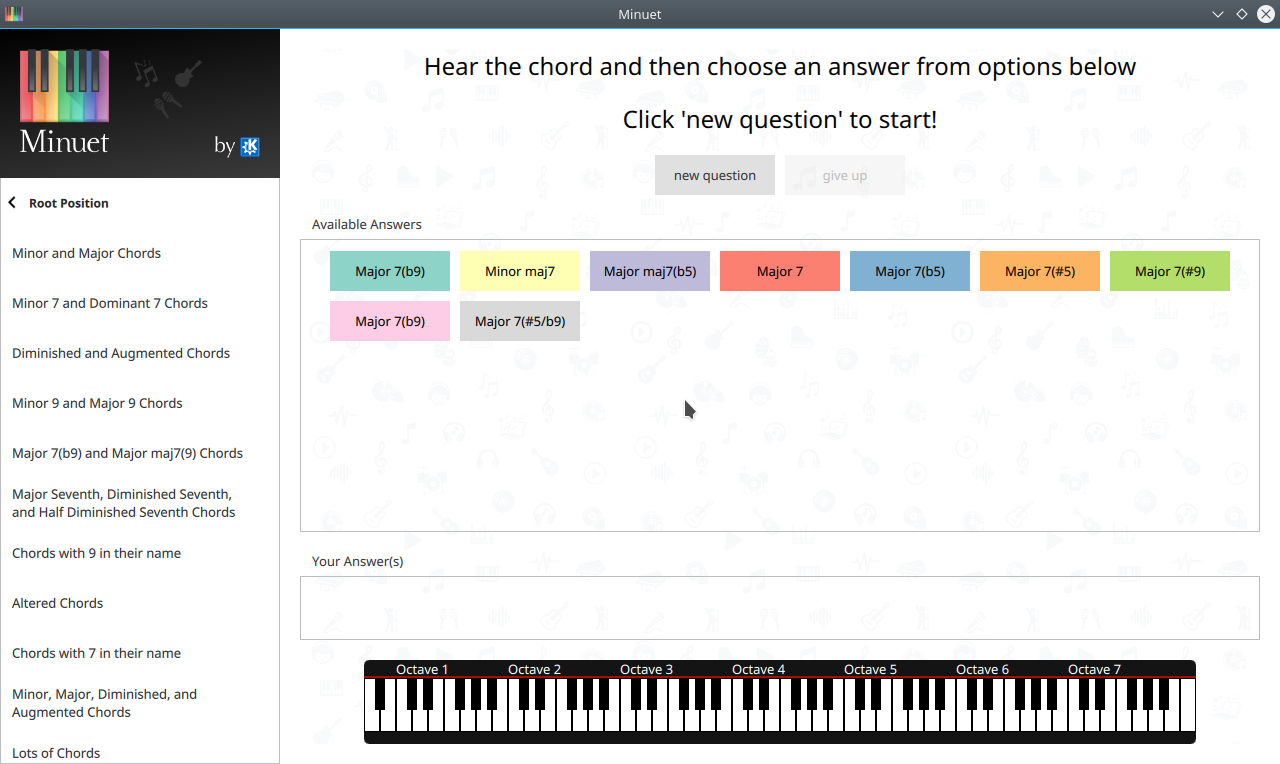
Se está ensinando ou aprendendo música, ten que probar Minuet. A nova versión permite máis exercicios de escalas e tarefas de adestramento de oído para escalas bebop, harmónica menor e maior, pentatónica e simétrica.
You can also set or take tests using the new Test mode for answering exercises. You can monitor your progress by running a sequence of 10 exercises and you'll get hit ratio statistics when finished.
E máis!
Okular, KDE's document viewer, has had at least half a dozen changes that add features and crank up its usability on touchscreens. Akonadi and several other apps that make up Kontact (KDE's email/calendar/groupware suite) have been revised, debugged and optimized to help you become more productive.
Kajongg, KCachegrind and more (Release Notes) have now been ported to KDE Frameworks 5. We look forward to your feedback and insight into the newest features introduced with this release.
K3b has joined the KDE Applications release.
Destrución de fallos
Solucionáronse máis de 95 fallos en aplicacións como, entre outras, Kopete, KWalletManager, Marble e Spectacle!
Historial completo de cambios
You can find the full list of changes here.Spread the Word
Non-technical contributors are an important part of KDE’s success. While proprietary software companies have huge advertising budgets for new software releases, KDE depends on people talking with other people. Even for those who are not software developers, there are many ways to support the KDE Applications release. Report bugs. Encourage others to join the KDE Community. Or support the nonprofit organization behind the KDE community
Please spread the word on the Social Web. Submit stories to news sites, use channels like delicious, digg, reddit, and twitter. Upload screenshots of your new set-up to services like Facebook, Flickr, ipernity and Picasa, and post them to appropriate groups. Create screencasts and upload them to YouTube, Blip.tv, and Vimeo. Please tag posts and uploaded materials with “KDE”. This makes them easy to find, and gives the KDE Promo Team a way to analyze coverage for this KDE Applications release.
Installing KDE Applications Binary Packages
Packages
Some Linux/UNIX OS vendors have kindly provided binary packages of KDE Applications for some versions of their distribution, and in other cases community volunteers have done so. Additional binary packages, as well as updates to the packages now available, may become available over the coming weeks.
Package Locations
For a current list of available binary packages of which the KDE Project has been informed, please visit the Community Wiki.
Compiling KDE Applications
The complete source code for KDE Applications may be freely downloaded. Instructions on compiling and installing are available from the KDE Applications 17.04.0 Info Page.
Supporting KDE
KDE is a Free Software community that exists and grows only because of the help of many volunteers that donate their time and effort. KDE is always looking for new volunteers and contributions, whether it is help with coding, bug fixing or reporting, writing documentation, translations, promotion, money, etc. All contributions are gratefully appreciated and eagerly accepted. Please read through the Supporting KDE page for further information or become a KDE e.V. supporting member through our Join the Game initiative.
About KDE
KDE is an international technology team that creates free and open source software for desktop and portable computing. Among KDE’s products are a modern desktop system for Linux and UNIX platforms, comprehensive office productivity and groupware suites and hundreds of software titles in many categories including Internet and web applications, multimedia, entertainment, educational, graphics and software development. KDE software is translated into more than 60 languages and is built with ease of use and modern accessibility principles in mind. KDE’s full-featured applications run natively on Linux, BSD, Windows, Haiku, and macOS.
Trademark Notices.
KDE® and the K Desktop Environment® logo are registered trademarks of KDE e.V..
Linux is a registered trademark of Linus Torvalds. UNIX is a registered trademark of The Open Group in the United States and other countries.
All other trademarks and copyrights referred to in this announcement are the property of their respective owners.
Press Contacts
For more information send us an email: press@kde.org